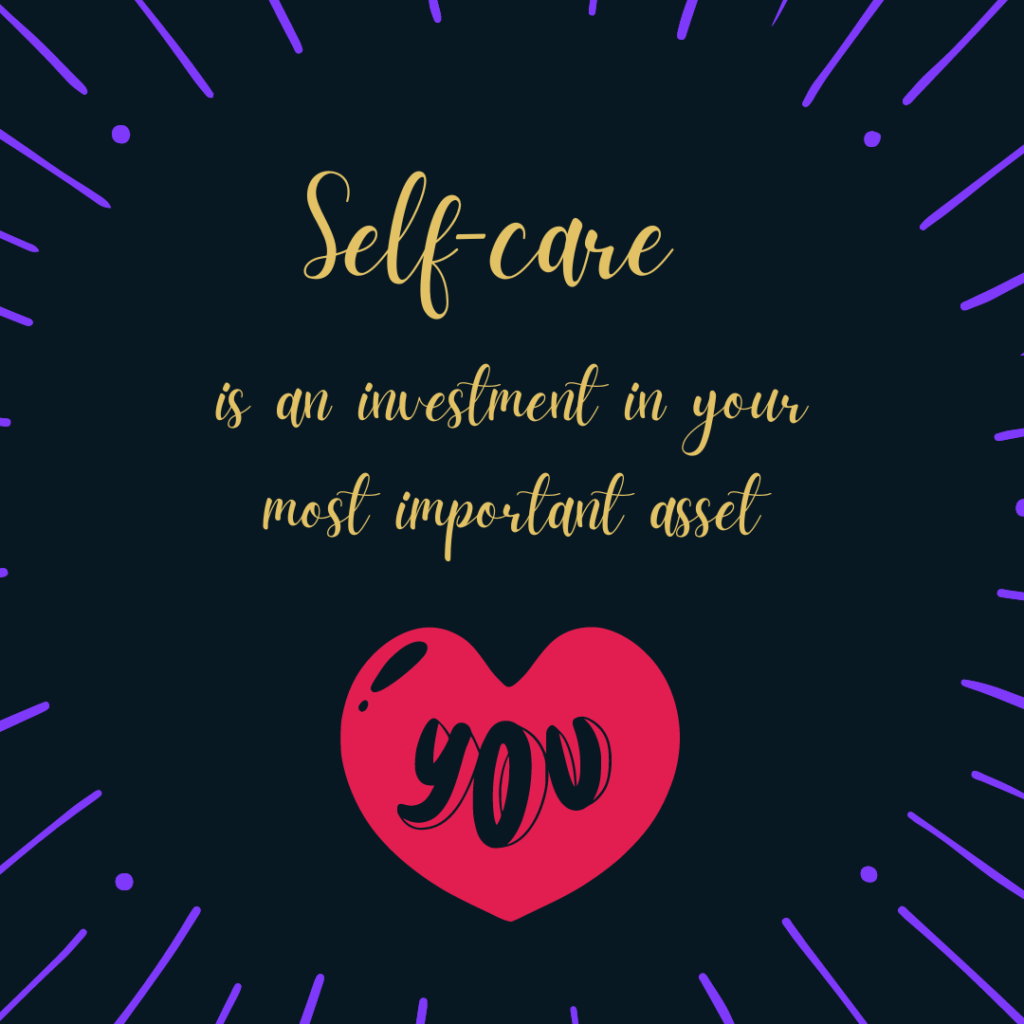Self-care is an essential practice that involves actively taking steps to preserve or improve one’s own health and well-being, particularly during periods of stress. It is a holistic approach that nurtures the mind, body, and spirit, and is crucial for a balanced and fulfilling life. This article delves into the importance of self-care and provides practical tips for incorporating it into your daily routine.
Understanding Self-Care

Self-care is often misunderstood as indulgence or selfishness. However, it’s about recognizing your needs and taking the time to attend to them. By doing so, you not only enhance your own life but also improve your interactions with others.
The Pillars of Self-Care
Physical
Self-Care
This includes activities that improve your physical health, such as exercise, nutrition, sleep, and healthcare.
Emotional
Self-Care
Managing stress, expressing emotions healthily, and seeking therapy or counseling when needed.
Spiritual
Self-Care
Engaging in practices that nurture your spirit, such as meditation, prayer, or spending time in nature.
Creating a Self-Care Plan
Self-care is a fundamental practice that requires a thoughtful approach. To begin, it’s crucial to assess your needs comprehensively. Take a moment to introspect and identify the areas of your life that require more attention, whether it’s your physical health, mental well-being, relationships, or personal development. Understanding these needs forms the foundation for a tailored self-care routine.
Once you’ve pinpointed these areas, it’s time to set realistic and achievable goals. These goals should align with your identified needs and be attainable within a reasonable timeframe. Avoid setting lofty or unattainable objectives, as they might discourage rather than motivate you. Setting smaller milestones can be a more effective way to track progress and stay motivated in your self-care journey.
Moreover, self-care isn’t just about meeting obligations; it’s about nurturing yourself holistically. Incorporating activities you genuinely love and enjoy is key. Whether it’s reading, painting, hiking, practicing yoga, or simply taking long walks, choose activities that bring you joy and relaxation. These moments of indulgence contribute significantly to your overall well-being, replenishing your energy and enhancing your quality of life.
By assessing your needs, setting achievable goals, and incorporating activities that bring you joy, you can create a self-care routine that’s not only effective but also sustainable in the long run. Remember, self-care isn’t selfish; it’s an essential investment in your physical, mental, and emotional health.
Challenges in Practicing Self-Care

In the hustle of daily life, finding time for self-care can seem like an impossible task. The truth is, prioritizing self-care is crucial, even if it means starting with small steps. Time constraints often make us feel like there’s no room for self-nurturing activities. However, it’s essential to remember that even the briefest moments devoted to self-care can yield substantial benefits.
One common hurdle in embracing self-care is the feeling of guilt. Many individuals struggle with guilt when taking time for themselves, considering it a selfish act. Yet, it’s vital to reframe this perspective. Self-care isn’t indulgence; it’s a necessity. Recognizing its importance is the first step in alleviating this guilt. Just like we prioritize other responsibilities, acknowledging the significance of self-care allows us to give it the attention it deserves without feeling guilty.
Feeling overwhelmed by the idea of starting a self-care routine is also common. It’s crucial to begin small and gradually expand your practices. Starting with achievable actions helps prevent overwhelm. Small steps, like a few minutes of deep breathing, a short walk, or even a moment of quiet reflection, can pave the way for larger self-care endeavors.
Ultimately, self-care is about making choices that prioritize your well-being. It’s a process that doesn’t demand grand gestures but rather a consistent commitment to nurturing yourself, even in the smallest moments. Overcoming time constraints, guilt, and overwhelm begins with recognizing the importance of self-care and taking incremental steps towards incorporating it into your routine.
Self-Care Strategies
Mindfulness and Meditation
These practices can help reduce stress and increase self-awareness
Mindfulness and meditation practices offer a sanctuary in the chaos of daily life. By taking a few moments each day to ground yourself in the present moment, you can reduce stress and enhance self-awareness. Mindfulness encourages a non-judgmental awareness of thoughts and feelings, allowing you to approach life with greater clarity and calmness. Similarly, meditation techniques provide a space for relaxation, fostering a sense of peace and mental clarity that can positively impact your overall well-being.
Physical Activity
Regular exercise is not only good for the body but also boosts mental health.
Engaging in regular physical activity isn’t just about staying fit; it’s a potent form of self-care. Exercise releases endorphins, neurotransmitters that uplift mood and reduce stress. Whether it’s a brisk walk, a yoga session, or hitting the gym, incorporating physical activity into your routine boosts not only your physical health but also your mental and emotional well-being.
Healthy Eating
Nourishing your body with healthy foods can improve your mood and energy levels.
Nourishing your body with wholesome, nutritious foods is a cornerstone of self-care. A balanced diet not only fuels your body but also influences your mood and energy levels. Consuming a variety of fruits, vegetables, lean proteins, and whole grains provides essential nutrients that support overall health. Additionally, paying attention to how food affects your body can empower you to make choices that promote wellness.
Social Connection
Spending time with loved ones or engaging in social activities can be a powerful aspect of self-care.
Human connection is a vital component of self-care. Spending quality time with friends, family, or engaging in social activities nurtures a sense of belonging and support. Meaningful interactions and shared experiences foster emotional well-being and contribute to a sense of fulfillment and happiness.
Rest and Relaxation
Ensure you get enough sleep and take breaks to recharge.
Prioritizing adequate rest and relaxation is crucial for overall health. Getting sufficient sleep allows your body and mind to recharge, promoting better cognitive function, mood regulation, and overall vitality. Additionally, taking breaks throughout the day to unwind, whether through reading, taking a bath, or engaging in hobbies, rejuvenates your mind and reduces stress.
Conclusion
Self-care is a deeply personal and vital aspect of living a healthy and happy life. It’s about making a commitment to yourself to take the time and do what is necessary to maintain balance and well-being.
By integrating self-care into your daily life, you can enhance your resilience, productivity, and overall satisfaction. Remember, the act of caring for yourself is not selfish; it’s one of the most important things you can do for yourself and everyone around you.






